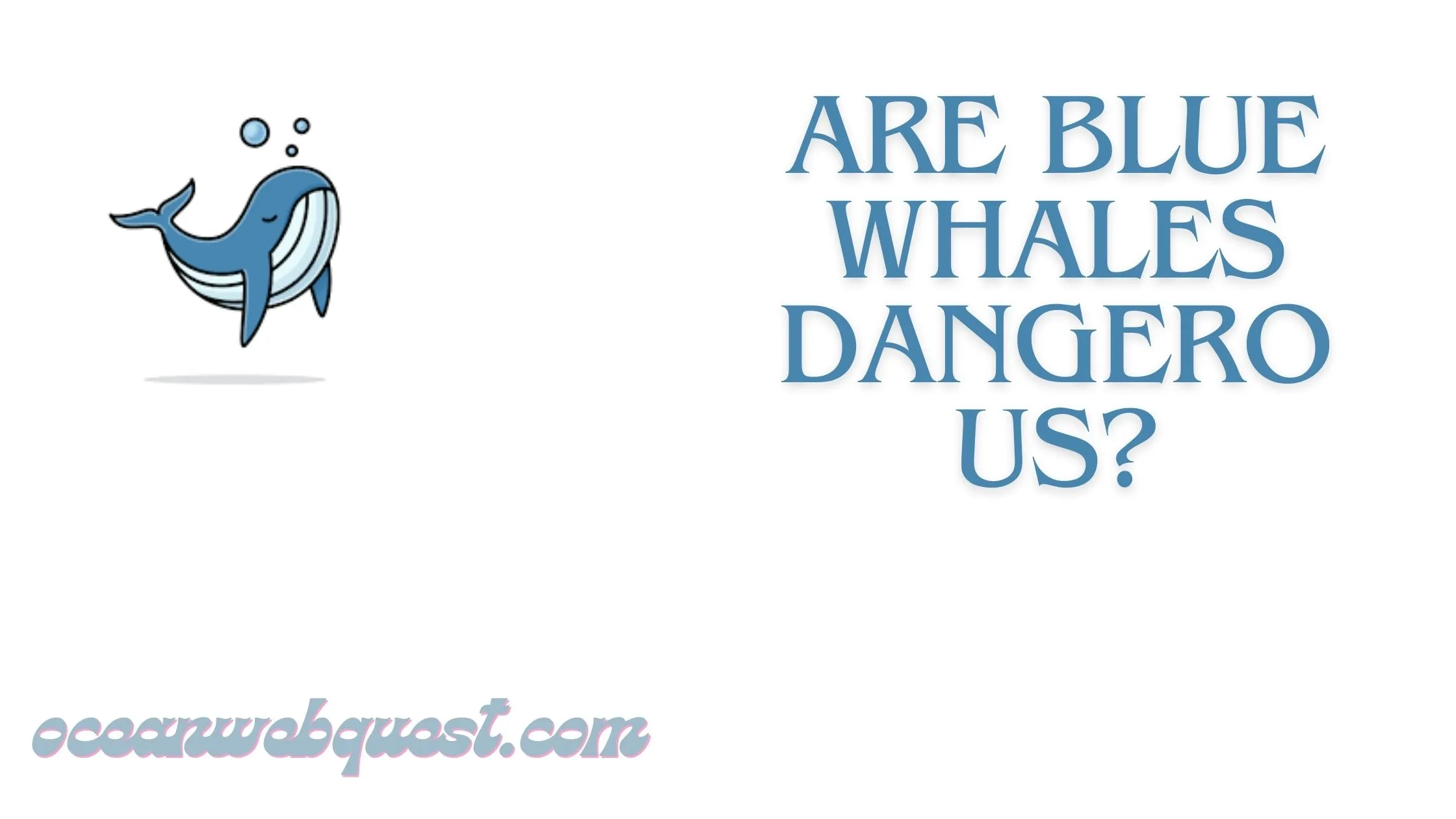Blue whales are the most giant animals ever to inhabit planet Earth; since ancient times, they have fascinated humans. These animals have become a critical part of mythology and folklore around the globe.
For some cultures, the blue whale is a guardian of ships, fishermen, and God. For others, this elusive animal is a man-eater or a demon, so which is it? Are they friendly? Or are blue whales dangerous?
When you imagine zero recorded happenings of a blue whale killing or harming a human, we can conclude that blue whales are not harmful. However, its sheer size makes it easy to suppose you could be injured by one. Let’s read on to find just how dangerous a blue whale could be for a small creature like you and me.
Are Blue Whales Dangerous?
Although peaceful, blue whales can easily attain a length of 33 m / 110 feet and an impressive weight of over 150 tons / 330,000 lbs, so even though they are not aggressive, an unexpected clash with one could cause serious harm to you.
There are no recorded happenings of a direct clash between a blue whale and a person; on the other hand, numerous reports of collisions between whales and ships, submarines, and other human-operated vessels result in the whale getting hurt or even dying.
If you look into the reporting of these two facts, we can decide that blue whales are not scary; meanwhile, humans are a considerable threat to these marvellous creatures. Many measures are put in place to protect blue whales, and their population has been increasing by 7 – 8% a year for about a decade.
Do Blue Whales Attack Humans?
An animal of such great size is equally breathtaking and intimidating; nevertheless, you don’t need to worry if you are lucky enough to find yourself near a blue whale; a blue whale has no interest in attacking humans.
First, you and I are just too small for a blue whale to feel threatened by our presence. And even if you were to make it feel uneasy in any way, chances are it would just swim off before trying to engage in conflict.
Secondly, despite its enormous size, the blue whale is a baleen whale. It has no teeth and feeds through a filtering technique that prevents it from consuming large prey. Most of its diet comprises krill, occasionally consuming tiny fish and crustaceans. So unless you look like a krill, a blue whale won’t think of you as prey. It must attack to get a meal.
Even though you can easily fit inside a blue whale’s mouth, its oesophagus only measures 25 cm / 10 inches in diameter, so a blue whale would not be capable of eating you even if it tried.
Is It Safe To Swim Near A Blue Whale?
I have always dreamed of swimming in the stunning blue ocean alongside animals as superb as blue whales. If you are reading this, you would also love this experience. The good news for you and me is that it is secure to swim around blue whales, and it can be done in Sri Lanka and the Azores Islands off the coast of Portugal.
The bad news is that many tour operators will offer this experience illegally, causing terrible damage to the animals we love. If you ever have the chance to live the unique experience of swimming with a blue whale, make sure you do it through a permitted operator, as this will guarantee that the experience is secure and enjoyable for you and respectful towards the blue whales involved.
I admiringly suggest checking out the International Whaling Commission’s (IWC) “Whale Watching Handbook” if you plan on swimming with blue whales to better prepare for the experience of a lifetime.
Something that makes swimming with blue whales more secure than other whale species is the reality that they rarely breach because of their extensive size. This minimizes the chances of being accidentally crushed by one as it re-enters the water.
Has A Blue Whale Ever Killed Anyone?
There is no recorded proof of a blue whale ever slaying a person. These creatures are gentle giants that will rarely show any aggressive behaviour. Most of the time, blue whales will appear just as curious in you as you are in them and wander off if feeling uneasy.
It is crucial, however, to remember that the blue whale is the most gigantic animal that has ever lived and, as all animals do, deserves our supreme affection.
If observing them from a boat, we must keep in mind to keep a secure distance from blue whales as they could easily tip a vessel (even accidentally). If you are lucky enough to be in the water with blue whales, always be respectful, especially around mothers with calves.
Final Thoughts
So, are blue whales dangerous? Certainly not. These animals are as noble and gentle as they are big and have no interest in causing harm to a human.
If you find yourself in the company of a blue whale, worry not and soak in every second of it, as it could easily be a once-in-a-lifetime experience that will modify how you see these sublime creatures forever.
I hope you have enjoyed learning about blue whales as much as I love educating them and that you will attach around to discover more beautiful truths about the elusive and majestic animals that call the oceans their home.
Until next time!
